Latest News
Afghanistan, Mexico designated as major drug hubs

President Obama on Monday designated 22 countries, including Afghanistan, Burma and Mexico, as “major drug transit and/or major illicit drug producing countries.”
The White House was careful to note that countries working to combat the drug trade can still wind up on the annual list because of a “combination of geographic, commercial, and economic factors that allow drugs to transit or be produced.”
Bolivia, Burma, which is now called Myanmar, and Venezuela were singled out as failing “demonstrably during the previous 12 months to adhere to their obligations under international counter-narcotics agreements,” according to the presidential determination sent to Secretary of State John Kerry.
Obama also declared that helping Burma and Venezuela fight drug producing and trafficking is “vital to the national interests of the United States.”
“[I]llegal poppy cultivation in Afghanistan is among the most difficult international drug-control problems,” Obama stated, adding that it has been the world’s largest poppy producer for 15 of the last 16 years.
Burma, which the Obama administration recently re-established ties with and is allowing U.S. businesses to invest in, and Laos are the next two biggest opium producers.
“[C]ountering illegal drug cultivation in Burma and Laos will require strengthening of state institutions and sustainable economic development,” Obama stated.
Obama praised Colombia, Haiti and Peru for their efforts to stamp out illegal drug production and trafficking.
“While Peru remains the top cocaine producer in the world, the Peruvian government has a comprehensive five-year counter-narcotics strategy to aggressively eradicate illicit coca, implement alternative development programs, interdict illicit narcotics and reduce domestic drug abuse,” Obama stated.
Although not on the list officially, Obama said China’s production of certain chemicals that can be used in synthetic drugs is of concern.
“The international community is also taking steps to focus attention on illegal drug activity in China, especially precursor chemicals produced in China that are diverted from legitimate commerce to criminal elements for the production of illicit plant-based and synthetic drugs,” he stated.
The following 22 countries were designated as major drug producers or gateways for fiscal 2016, a list that is unchanged from last year: Afghanistan, The Bahamas, Belize, Bolivia, Burma, Colombia, Costa Rica, Dominican Republic, Ecuador, El Salvador, Guatemala, Haiti, Honduras, India, Jamaica, Laos, Mexico, Nicaragua, Pakistan, Panama, Peru and Venezuela.
Obama noted that next April, the United Nations is convening a special session focusing on combating drug production and trafficking globally.
Source: Washington examiner

Latest News
Afghanistan welcomes investment and technology partnerships with India
Azizi welcomed the proposals, emphasizing Afghanistan’s abundant investment opportunities and reaffirming full support.
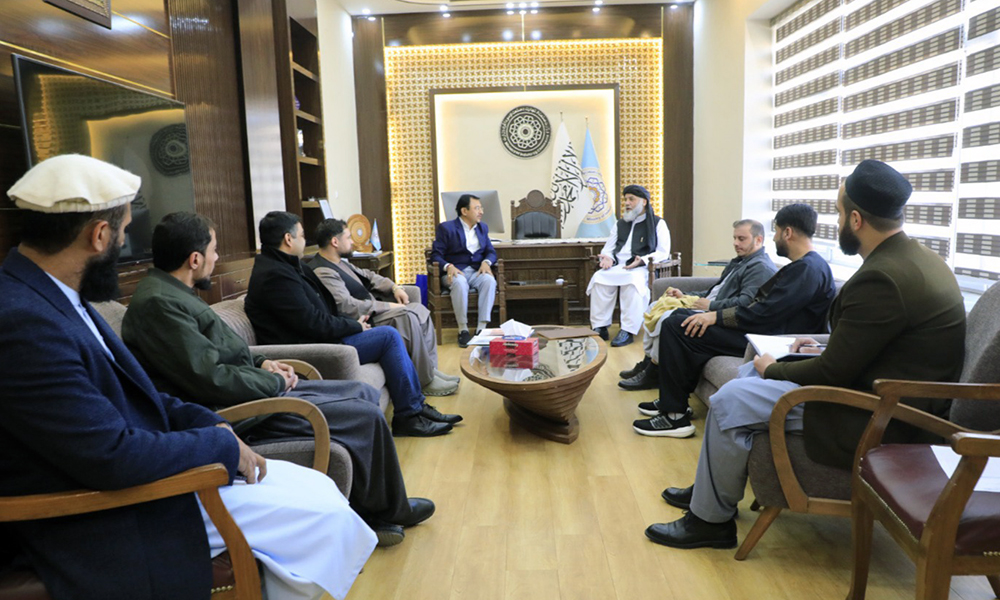
Nooruddin Azizi, Afghanistan’s Minister of Commerce and Industry, met with Ankush Satana and his delegation at his office to discuss expanding economic and technological cooperation.
During the meeting, Satana expressed interest in establishing a gemstone exhibition salon in Afghanistan and connecting Afghan and Indian traders in the pharmaceutical sector.
He also highlighted Germany’s advanced technology capable of producing large quantities of diesel fuel from collected plastic waste and expressed willingness to transfer this technology to Afghanistan.
Azizi welcomed the proposals, emphasizing Afghanistan’s abundant investment opportunities and reaffirming full support.
He noted that the country’s private sector is active and prepared to collaborate with foreign investors.
This meeting represents a significant step toward strengthening economic partnerships and fostering technology transfer, further boosting Afghanistan’s position as a hub for investment and trade in the region.
Latest News
Khyber Pakhtunkhwa governor urges political dialogue with Afghanistan
Kundi stated that security in Khyber Pakhtunkhwa is directly affected by conditions in Afghanistan and recalled how past conflicts, including post-Soviet wars and post-9/11 events, fueled militancy in the region.
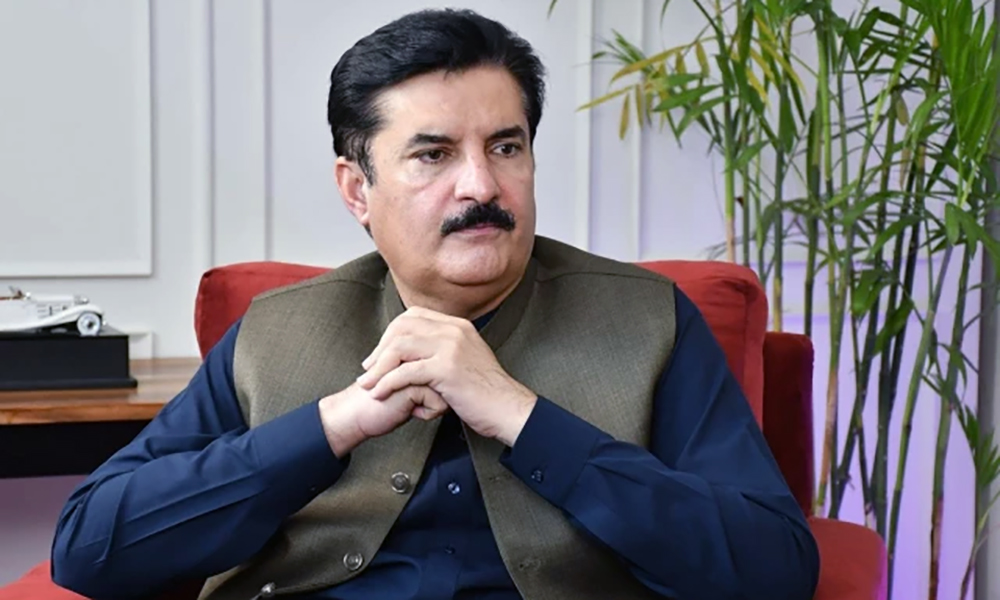
Faisal Karim Kundi, Governor of Khyber Pakhtunkhwa, stressed the importance of political dialogue with the Islamic Emirate of Afghanistan during a regional meeting on “Security, Trade, and Economic Affairs between Pakistan and Afghanistan” held in Peshawar.
The event was hosted by the University of Peshawar’s Department of International Relations.
Kundi said that domestic and cross-border challenges can only be addressed through constructive engagement among political leaders. He emphasized that a stable Afghanistan is essential not just for Pakistan, but for the wider region, and that lasting peace is key to economic growth and expanded trade.
The meeting also addressed regional security, trade challenges, and the potential of Pakistan-Afghanistan crossings to strengthen connectivity with Central Asia.
Kundi stated that security in Khyber Pakhtunkhwa is directly affected by conditions in Afghanistan and recalled how past conflicts, including post-Soviet wars and post-9/11 events, fueled militancy in the region.
The IEA has meanwhile not commented on Kundi’s remarks but officials have in the past repeatedly acknowledged the need for positive dialogue with neighboring countries to strengthen ties and economic relations.
Latest News
US raises concerns over American detainees in Afghanistan
Zabihullah Mujahid, spokesperson for the Islamic Emirate, said talks with U.S. officials are ongoing and expressed hope for a peaceful resolution.
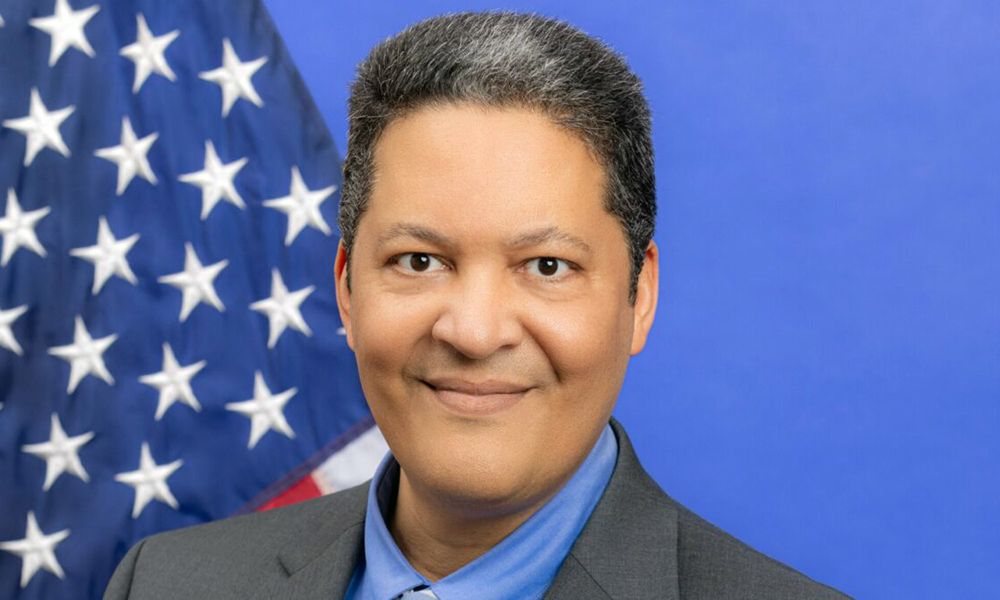
Don Brown, U.S. chargé d’affaires for Afghanistan in Qatar, expressed concern over American citizens currently detained in Afghanistan, describing their situation as “regrettable” and calling for continued diplomatic efforts to resolve the matter.
Brown noted that the detainee issue remains a key focus in discussions between Washington and Kabul.
Zabihullah Mujahid, spokesperson for the Islamic Emirate, said talks with U.S. officials are ongoing and expressed hope for a peaceful resolution.
The matter has been part of U.S.-Afghanistan engagement for several years, with past negotiations securing the release of some Americans.
In September 2025, the U.S. established a framework allowing sanctions on entities that wrongfully detain American citizens.
The situation underscores the continuing importance of detainee negotiations in U.S.–Afghanistan relations.
-
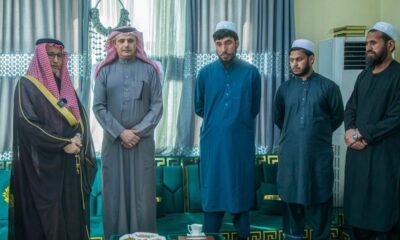
 Latest News2 days ago
Latest News2 days agoIEA releases three Pakistani soldiers to mark Ramadan
-
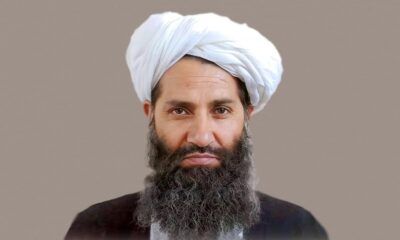
 Latest News2 days ago
Latest News2 days agoGrateful to Afghans and Ulama for obeying the Islamic Emirate, says Hibatullah Akhundzada
-
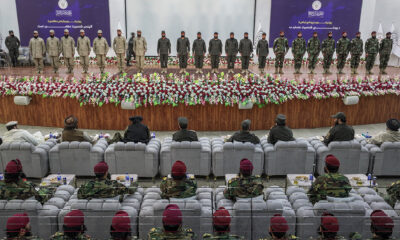
 Latest News3 days ago
Latest News3 days agoAfghanistan’s defense ministry unveils new military uniforms for armed forces
-
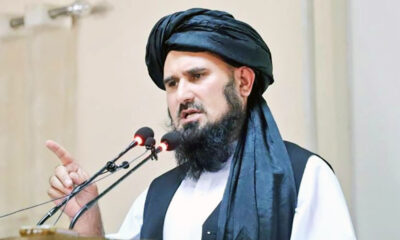
 Latest News1 day ago
Latest News1 day agoAfghanistan’s Chief of Armed Forces underscores readiness and equipment for national defense
-
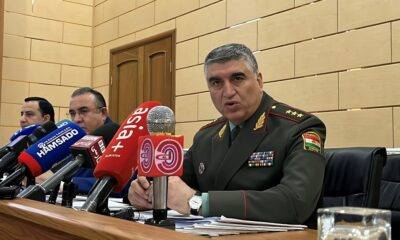
 Latest News4 days ago
Latest News4 days agoTajikistan: Recent attacks from Afghanistan aimed at damaging our relations with China
-

 Business4 days ago
Business4 days agoIran–China rail link via Afghanistan proposed to cut transit time
-
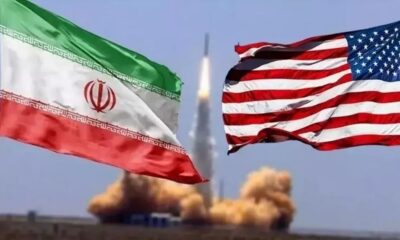
 Latest News4 days ago
Latest News4 days agoIran would prevail in potential conflict with the United States, says IEA spokesman
-
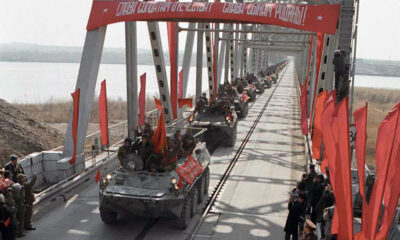
 Latest News4 days ago
Latest News4 days agoIEA marks 37th anniversary of Soviet withdrawal from Afghanistan















